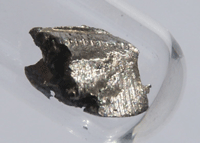As Bloomberg Businessweek reports, China's Commerce Ministry responded to media in a statement that said the country will “continue to supply rare earth to the world," but must reduce exports for environmental and economic reasons.
Japan, which buys some 56 percent of China's rare earth minerals, is already feeling the pinch, Reuters reports. A reduction in cerium, essential for making flat-panel televisions and hard-drives, has sent manufacturers there into a scramble as they have noticed a 16-fold increase in the price of the mineral over the past decade.
Of course we could all get the elements somewhere else, given that "rare" is a misnomer. Cerium, for example, is actually the 25th most abundant element of the 78 common elements in the earth's crust, according to the USGS. A better name for the 17 rare earth minerals might be "hard-to-extract safely minerals." As Global Post describes:
The ore typically contains radioactive elements, like thorium, radium and even uranium in the case of the Chinese mine. Moreover, the ore needs to be boiled in acid literally thousands of times. This renders the waste stream dangerous. . . The massive Inner Mongolia mine, on the banks of the Yellow River, is said to be an enormous toxic wound on the earth, but environmental standards in the Middle Kingdom remain lax.
Some, such as George Leopold at EE Times suggest that the United States should devise new, safer ways to mine and process rare earth elements here. Molycorp Minerals, in Greenwood, Colo., the owner of the largest U.S. repository of rare earth metals, which stopped operating in 1992 when prices dropped, might be one place to start. Leopold also says we might encourage consumer electronics recycling programs as in Japan.
Another alternative might be redesigning electronics so they don't need these minerals. Dexter Johnson addressed using nanoscale materials for this exact purpose in a Nanoclast blog post in June.
Image: Cerium, Materialscientist/Wikimedia Commons




